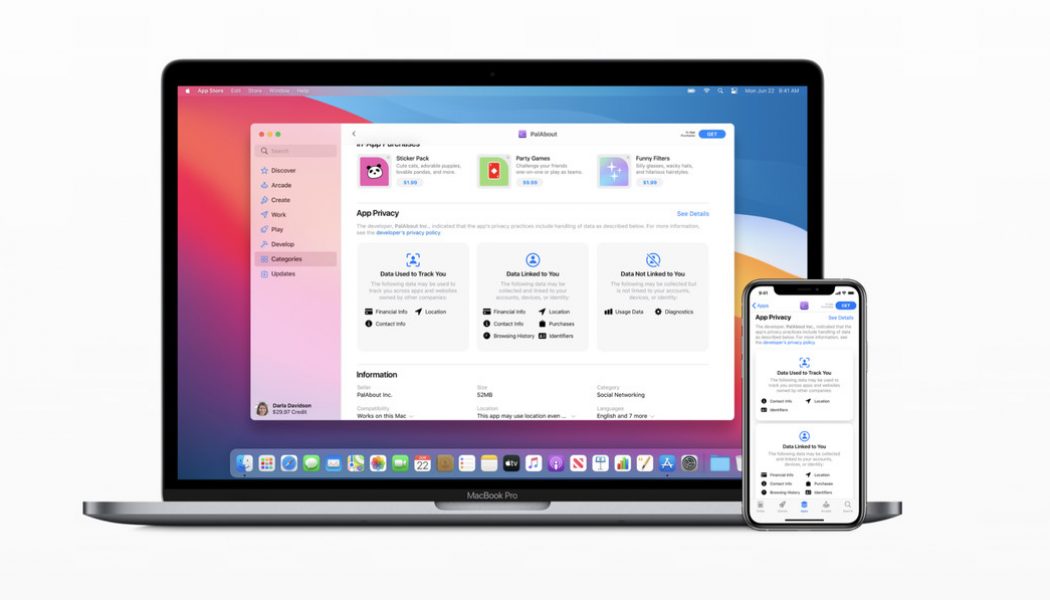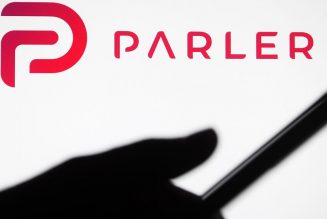Apple is making good on its promise to provide more transparency around iOS app data collection with the launch of new privacy labels on the App Store.
The company first announced its intention to provide these so-called “nutrition label” privacy disclosures back in June during WWDC, and last month Apple disclosed that developers would have to provide this information by December 8th or risk losing the ability to update their apps. Now, following that deadline, Apple is launching the feature officially for all iOS device owners running the latest version of iOS 14.
Apple says the new labels will be required for apps on all of its platforms — that includes iOS, iPadOS, macOS, watchOS, and tvOS — and they will have to be up to date and accurate every time a developer submits a new update. Apple is also holding itself to the same standard, something the company clarified last week when Facebook-owned WhatsApp criticized the company for an apparent inconsistency in its requirements, before Apple said it, too, will provide labels for all its own software.
The company’s own first-party apps will all have the same disclosures on their App Store product pages. In the event an app doesn’t have an App Store product page because it cannot be removed, like the Messages app, Apple says it will be providing privacy label information on the web. Every piece of software on the App Store will also have its privacy label viewable on the web, too.
:no_upscale()/cdn.vox-cdn.com/uploads/chorus_asset/file/22168998/Screen_Shot_2020_12_14_at_10.33.12_AM.png)
As for how the labels are structured, Apple has broken down data collection into three categories: “data used to track you,” “data linked to you,” and “data not linked to you.”
Tracking in this context means the app developer is linking data from the app — like personal information, or data collected from your device, such as location data — with other data from other companies’ apps or websites for the purpose of targeted advertising or some other ad-related metric. Apple says it’s also using the term tracking here to mean sharing user or device information with companies that sell it, like data brokers.
The “data linked to you” portion of the label is any data that can be used to identify you. That means data gleaned from using the app or having an account with the service or platform, and any data pulled from the device itself that could be used to create a profile for advertising purposes.
“Data not linked to you” is the portion of the privacy label that clarifies when certain data types, like location data or browsing history, are not being linked to you in any identifiable fashion. Apple has specific, developer-focused information on the new labels at its developer portal page, with more general information available on the consumer-facing page.
This isn’t the last of Apple’s major privacy changes coming with iOS 14. The company intends to release a new privacy feature requiring developers to ask for explicit permission to track iOS device users across apps and websites using a unique device identifier, called an IDFA (or Identification for Advertisers) code. The plan was to require this with the launch of iOS 14, but Apple announced in September that it would delay the feature until some time next year, to give developers more time to comply.










